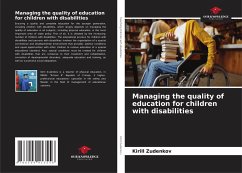
Managing Emotions on a Crisis Hotline
Versandkostenfrei!
Versandfertig in 6-10 Tagen
36,99 €
inkl. MwSt.

PAYBACK Punkte
18 °P sammeln!
Hotline counselors and professional therapists who provide advocacy to sexual assault survivors are an understudied population. Researchers have begun to focus on the adverse affects of exposure to trauma on a continual basis and the vicarious effects of trauma (VT) experienced by counselors and therapists who interact with survivors of sexual assault. Little is known about the impact that VT has on counselor's/therapist's ability to help themselves in addition to helping others. This study describes how hotline counselors and therapists learn to manage their emotions, overcome symptoms of VT,...
Hotline counselors and professional therapists who provide advocacy to sexual assault survivors are an understudied population. Researchers have begun to focus on the adverse affects of exposure to trauma on a continual basis and the vicarious effects of trauma (VT) experienced by counselors and therapists who interact with survivors of sexual assault. Little is known about the impact that VT has on counselor's/therapist's ability to help themselves in addition to helping others. This study describes how hotline counselors and therapists learn to manage their emotions, overcome symptoms of VT, and learn to deal with disturbing emotions resulting from direct exposure to trauma experienced by sexual assault survivors. The goal is to outline the factors that contribute to the counselor's and therapist's personal and professional development and explain how they learn to help themselves first before helping others.












